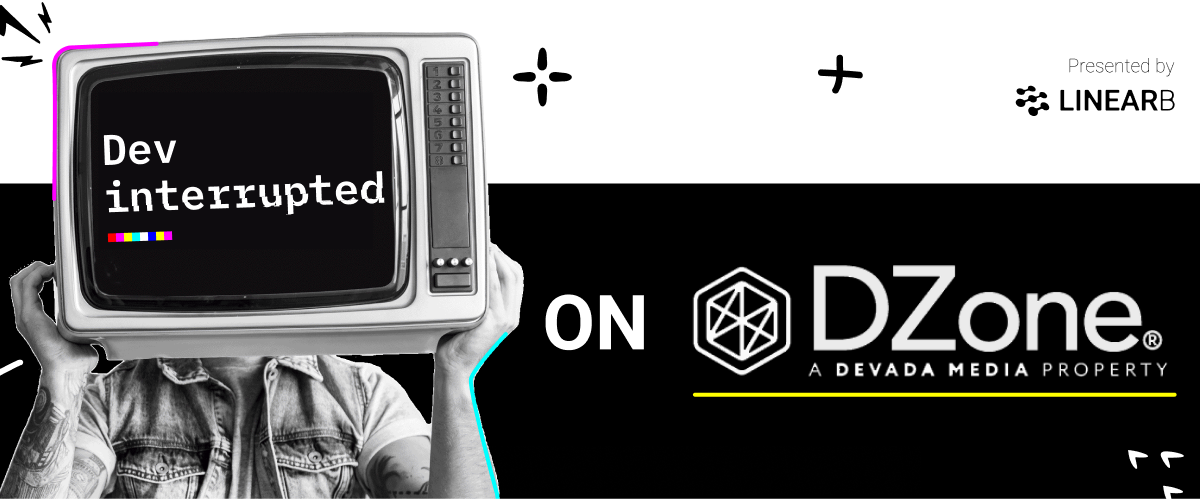Atlassian’s Eye-Opening State of Teams Report
Modern Work Evangelist Mark Cruth joins Dev Interrupted to talk about Atlassian's research on both healthy and unhealthy teams
Join the DZone community and get the full member experience.
Join For Free When you get the chance to geek out over the metrics behind happy dev teams, you take it.
When you get the chance to geek out over the metrics behind happy dev teams, you take it.
As one of the companies shaping how the modern workforce, well… works, Atlassian is one of the foremost thought leaders in the space thanks to an amazing research and data team.
Case in point: Atlassian’s State of Teams Report.
In this week’s episode, modern work evangelist Mark Cruth takes us through the most interesting, insightful and counterintuitive findings from their deep dive on what is separating healthy teams from unhealthy ones.
From whether hybrid or in-office is the best for modern teams to what work principles are the most important to keep in a remote world, this conversation about the State of Teams report is an eye-opener for anyone whose success depends on the work of others.
Episode Highlights Include:
- (4:38) What is the State of Teams Report?
- (7:55) Why where you work doesn't affect team health
- (10:48) Areas where teams struggle most
- (16:24) Biggest takeaways for leaders from the report
- (23:39) Building a human-centric team climate
- (36:00) Sneak peek at Mark's Interact presentation
- (44:11) How (and why) teams should celebrate achievements more often
Episode Excerpts:
Atlassian's study shows where you work has no impact on team health:
Mark: So I'm going to sell this to your listeners here, and I might make some enemies and then it always happens. It doesn't matter where you work. You could be in the office. You could be hybrid. You could be remote. Things like team health, no impact. Now, that's a little bit of a fib. And the only reason I say that is that we did find that there's a range, and healthy teams anywhere from like 15 to 20% is kind of where that number of healthy teams are, 18 and 20% of the you know, those numbers are with the remote and hybrid. 15% of office workers are healthy. So the data indicates that you're a little better off if you're, you know, you're actually hybrid or remote, but it doesn't actually play that much into into the grand scheme. And I think the big thing I wanted to bring out with this is that that is the sexy thing today. Everybody's talking about this. It's got all the main headlines. But the problem is, we're fixated on honestly the wrong thing. We're fixated on this problem because I think we can all relate to it. But the actual underlying issues have to do with those modern work problems. It has to do with the things like, guess what? Teams are really struggling with the engagements, teams are struggling with how they align with each other and connect with each other. These are the things that actually lead to these unhealthy teams. And, you know, ultimately cause things like turnover, ultimately cause things like, you know, you hear that term out there, which I'm not a big fan of, but that term of quiet quitting, basically lack of engagement. Those are things that result of that.
Stop thinking about change as a major transformation:
Conor: I really like this idea of we're going to evaluate how teams are working. Obviously, I think a lot of folks are starting to do that, but also doing it specifically for modern work and looking at like, how can we aggregate marginal gains across the board for these teams? Because to reference what you said about inches, right? Like there are little places you can just make a difference now that goes so far to reverberate across the organization.
Mark: You don't have to uptick the apple cart to actually get things better. You know, you don't have to go in there like we’re going to go through a major transformation or we're going to do that. Shoot, even some of our data has indicated that transformations, although successful, actually lead to things like turnover and just this feeling of burnout. You know, those are things that, yes, they're impactful. But the thing is we can get to that same destination in a much more progressive way.
Opinions expressed by DZone contributors are their own.

Comments